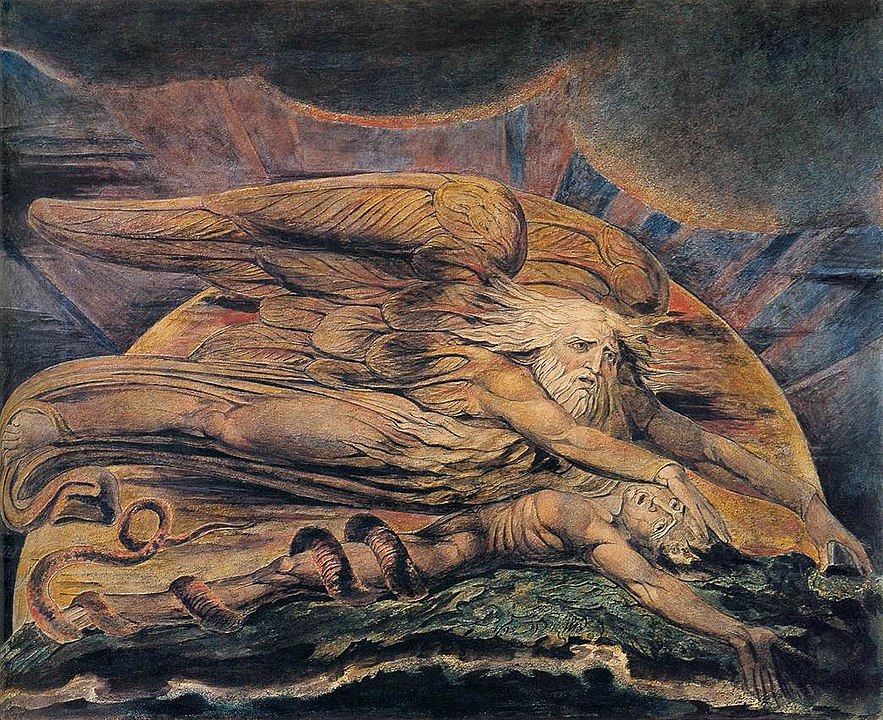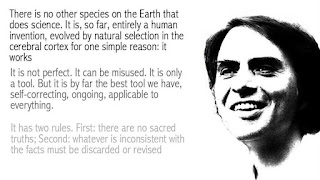
The full-length, published version of this article can be found here.
The Abrahamic religions (Judaism, Christianity, and Islam) share more than just the belief that Abraham was an important prophet. They also hold in common the view that God is the perfectly good creator of the world who has designed it so that any gratuitous evil is of our choosing rather than God’s responsibility.
The origin story is the same in outline, and it is found in Genesis. God placed Adam and Eve in a garden free of evil. However, Adam and Eve knowingly and willingly disobeyed God. They introduced evil into the world by rebelling against their creator. God bore no fault in their fall.
Suppose we grant that there is a creator. It does not follow that humans have an overriding moral obligation to praise and obey the being who created them. On the contrary, if the creator is responsible for a morally unsupportable evil, then it follows that the creator is not perfectly good.
Consider the following origin story, which we can call “The Garden of Blameless Disobedience”. In this story, the creator gives Adam and Eve conflicting commands. Adam is told they can eat every fruit in the garden except apples, and Eve is told they can eat anything except strawberries. Suppose Adam eats strawberries, and Eve takes great delight in the occasional apple. Each disobeys a command the creator has given. However, assume each has an all-things-considered obligation, or one that trumps all other commitments, to obey the creator. In that case, the creator could not have a morally sufficient reason for giving them conflicting commands, because no moral good could possibly result. In the Garden of Eden, Adam and Eve are wholly responsible for introducing gratuitous evil into the world. In contrast, in the Garden of Blameless Disobedience, the creator is responsible for the evil and hence the creator is not God.
There is a variant of “The Garden of Blameless Disobedience” in which Adam and Eve are also not culpable for introducing evil into the world. We can call it “The Garden of Blameless Confusion”. In it, the creator commands Eve not to eat strawberries, but the creator does not speak to Adam. However, Adam sincerely but mistakenly believes that God has given him a command that the only fruit they cannot eat are apples. In this garden, the creator designs Adam so that, through no fault of his own, he does not reliably form beliefs about what the creator has commanded. He accepts some commands as originating from his creator when they do not. As a result, Adam and Eve quarrel unnecessarily about what fruit they can and cannot eat. Again, assuming they have a paramount or overriding obligation to obey their creator, Adam’s sincere but mistaken belief that they should not eat apples can serve no greater moral purpose; there cannot be a morally sufficient reason for doing what is all things considered morally wrong. In the Garden of Blameless Confusion, the creator does not deserve unsurpassed praise and unquestioning obedience and therefore the creator is not God.
My argument in “God and the Problem of Blameless Moral Ignorance” is that our world is much more like the Garden of Blameless Disobedience or the Garden of Blameless Confusion than the Garden of Eden.
Any creator whom we have an overriding obligation to praise and obey cannot be responsible for or the cause of any of our wrongdoing. God cannot create a state-of-affairs in which we stumble into evil. But suppose there is a creator who is the architect of a world in which we sometimes blamelessly attribute false commands to her or him. In that case, that creator is responsible for the ensuing evil. Since it is morally better that we don’t disobey God, even unwittingly, or violate one of our fundamental moral obligations, it is not enough that we are not culpable when we do. That we are blameless does not exonerate the creator.
Some theists agree. They deny that God is responsible for our mistaken moral beliefs or for attributing commands to Him that he did not give.
Nonetheless, they also hold that every acceptance of a false command and every fundamental mistaken moral belief is due to sin. They believe God has given us a faculty, the “sensus divinitatis”, which, somewhat like a conscience, provides all who do not hate God with knowledge of His existence and basic demands. According to them, all false beliefs about our fundamental moral obligations and God’s commands originate in pride and a rebellious desire to direct one’s life rather than submit to God’s will.
However, we have overwhelming evidence that this latter claim is false. While it is undoubtedly the case that human beings often knowingly and willingly do what is wrong, there are also many instances in which people do what is wrong while sincerely aiming at the good and fulfilling God’s will.
Consider the following example (I discuss more in the paper). Some theists believe God has commanded them to provide women with abortions under certain circumstances. Others think that God has forbidden abortion in every instance. Can this difference in belief in every instance be attributed to a hatred of God? Surely not.
There are a host of cases in which sincere believers, roughly equal in charity and devotional practices, disagree about what our fundamental moral obligations are.
Given the existence of blameless moral ignorance, it is inconceivable that God exists. God cannot be responsible for evil which serves no greater moral purpose. Any creator who designs human beings so that they are blamelessly mistaken about what they most ought to do is a lesser god.
There cannot be a morally sufficient reason for either causing or allowing rational agents to do what is, all-things-considered, morally wrong. For the Creator of the world to be worthy of the highest praise and unquestioning obedience, the moral structure of the world must be good, and recognizably so.
Want more?
Read the full-length article at https://journals.publishing.umich.edu/ergo/article/id/2233/
About the author
F. J. Elbert received a Ph.D. in philosophy from Vanderbilt University. His research focuses on the implications of blameless fundamental moral disagreement in the fields of ethics, political philosophy, and philosophy of religion.
